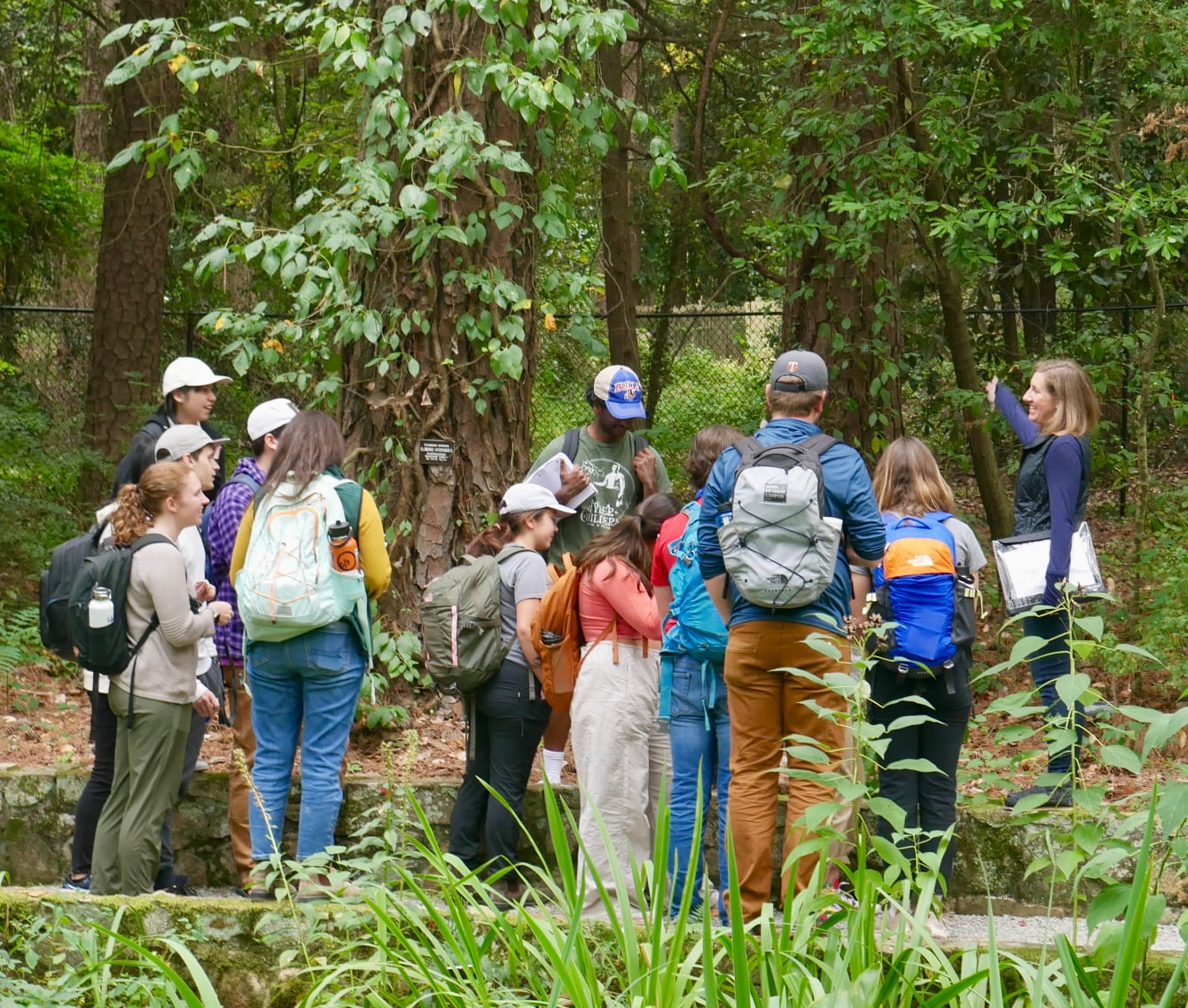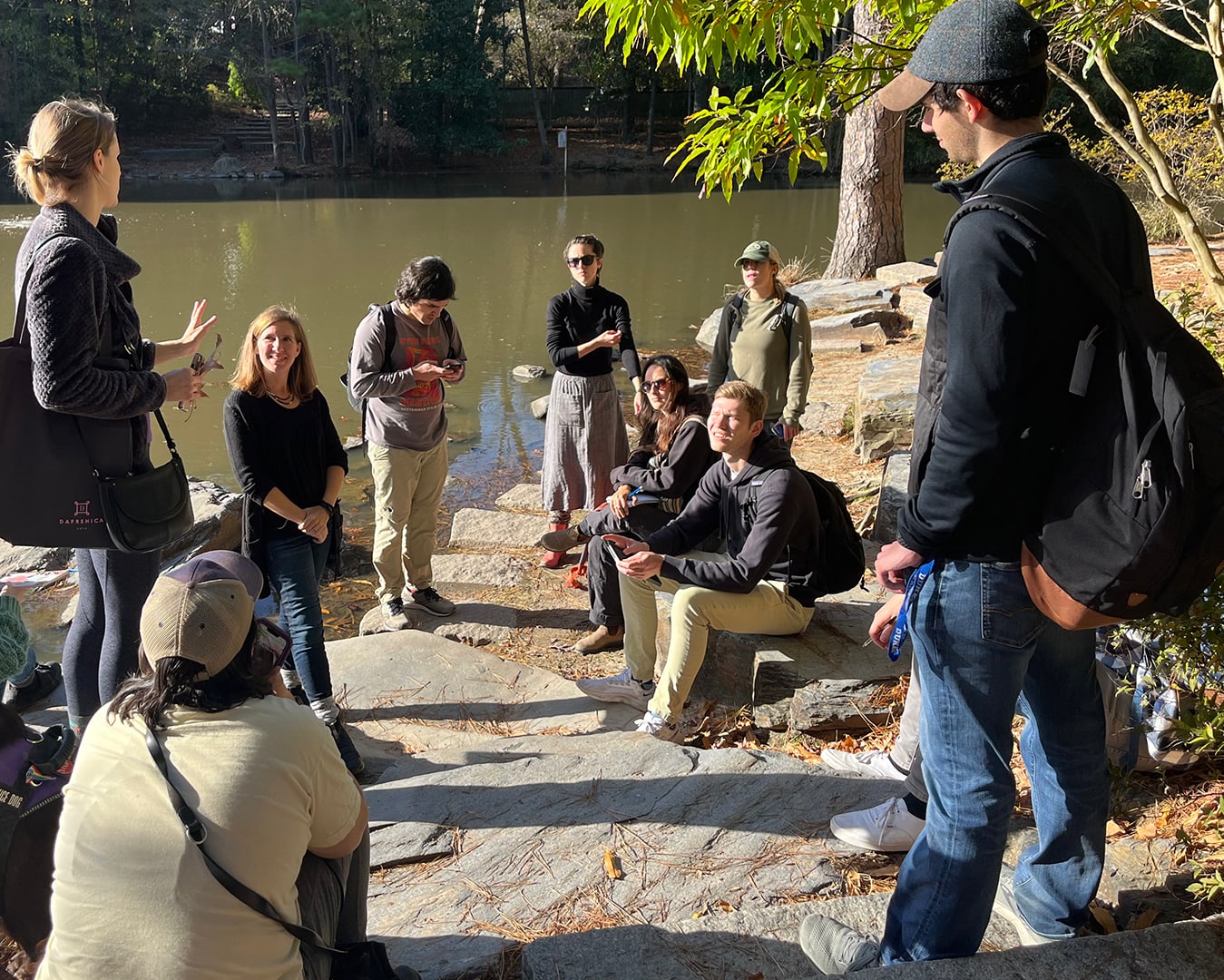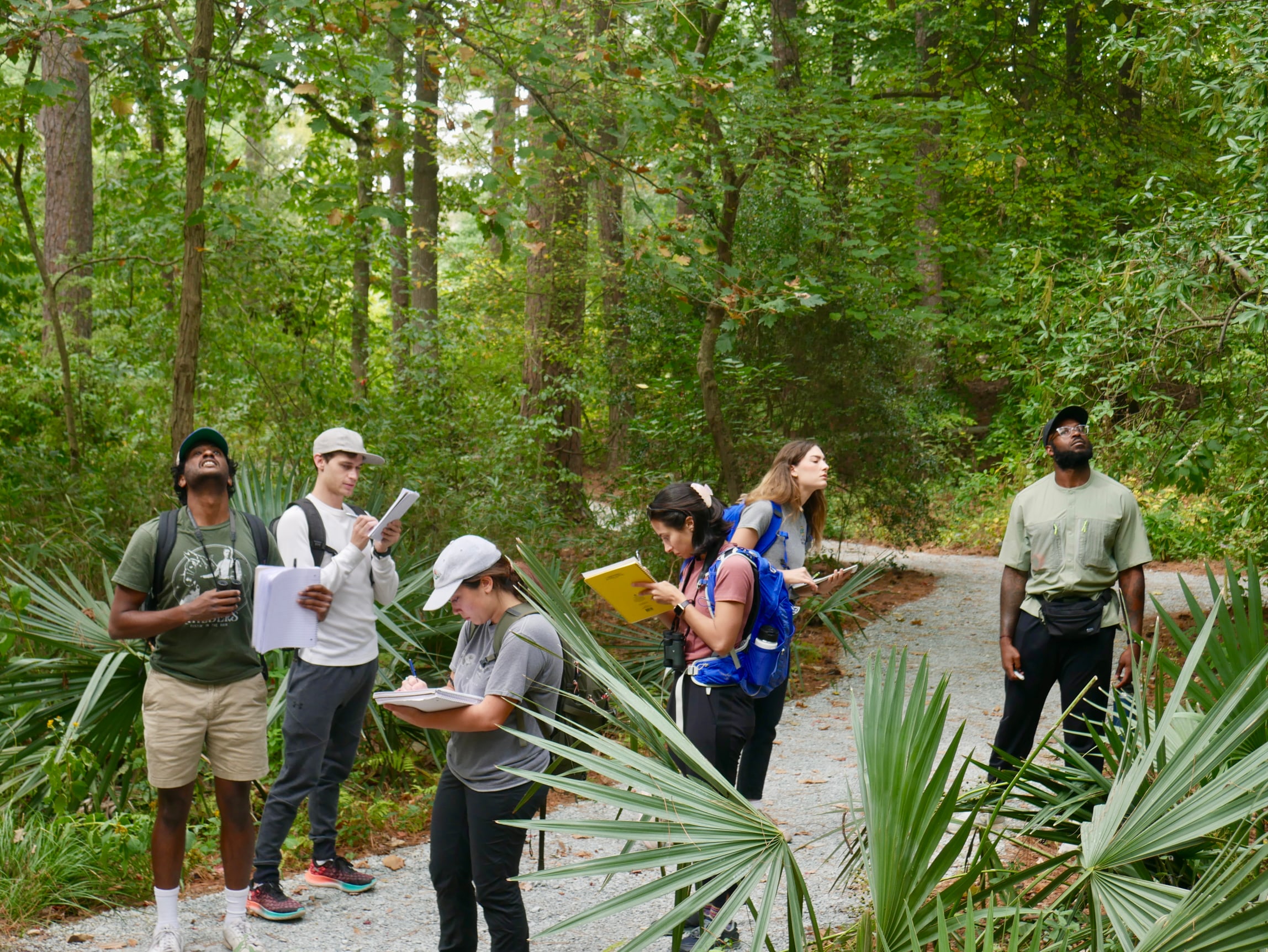A Living Laboratory
Academic Partnerships Lead to Immersive Learning Experiences
by Katherine Hale
 When Nicolette Cagle first arrived at Duke as a graduate student in ecology, she found respite in Duke Gardens. She also began to expand her knowledge of the plants and birds she found there, especially those that were different from the ones she’d learned about as a child in Illinois. Even after completing her doctorate and attaining a faculty position at the Nicholas School for the Environment, she continued to visit the Gardens at least once a week with her young son Grant, observing firsthand how these experiences instilled a love of the natural world in him. And that’s what got her thinking, “How could my teaching capitalize on the wonder and awe in the natural resources here at Duke Gardens?”
When Nicolette Cagle first arrived at Duke as a graduate student in ecology, she found respite in Duke Gardens. She also began to expand her knowledge of the plants and birds she found there, especially those that were different from the ones she’d learned about as a child in Illinois. Even after completing her doctorate and attaining a faculty position at the Nicholas School for the Environment, she continued to visit the Gardens at least once a week with her young son Grant, observing firsthand how these experiences instilled a love of the natural world in him. And that’s what got her thinking, “How could my teaching capitalize on the wonder and awe in the natural resources here at Duke Gardens?”
“I was very keen to give students some of the experiences that I myself had as a student and that my child had, but in a way that was guided and served a pedagogical purpose,” says Cagle, now a senior lecturer in environmental science and policy at the Nicholas School. “This is especially important for students who have not spent much time in the natural world before. Going to the Gardens is a more comfortable way for them to connect to the natural world than going right into a wilderness situation, and it can serve as a gateway to more intensive experiences in the future.”
Cagle’s Wildlife Surveys and Dendrology courses allow students to explore the Gardens and expand their horizons in a number of different ways. Observing birds at the feeders in the Blomquist Garden of Native Plants allows them to identify individual animals and how they interact with the other species around them in a broader ecological context. When Cagle and Duke Gardens staff members temporarily cover up the Gardens’ plant identification signs and tags, it enables students to practice their identification skills in a controlled environment. And gathering in the Piedmont Prairie Classroom inspires powerful and wide-ranging conversations about ecology, restoration, colonization, mythology and the history of this unique landscape.
Cagle doesn’t limit herself to the Blomquist Garden for teachable moments. A pecan tree in the Charlotte Brody Discovery Garden provides an opportunity to talk about the ecosystem services provided by plants, particularly food production. A visit to the Culberson Asiatic Arboretum allows students to compare Asian maples and oaks with their North American counterparts—and, if they’re lucky, spot the resident great blue heron capturing a fish. And regardless of their ultimate destination, Cagle always sets the tone for each class by walking her students through the Terrace Gardens to inspire awe, wonder and beauty.
“I think more faculty would want to hold their classes here if they knew how easy it was,” Cagle says. “There were a couple of times early on where I made mistakes and I didn’t realize that I should register my classes. It was an important learning opportunity for me because registering actually opens up more opportunities—Duke Gardens’ staff are always extremely helpful and able to provide any resources and support that we’ve needed.”
Kati Henderson, the Gardens’ university partnerships and community engagement program coordinator, works directly with Cagle and Duke faculty across myriad disciplines to schedule and organize classes. Cagle’s classes have also brought her into contact with many of the horticulturists on staff, particularly Blomquist curator Annabel Renwick. And she has worked closely with Kavanah Anderson, director of learning and community engagement, to develop culturally inclusive pedagogy and ways to bring people into the environmental world in a manner that is comfortable and respectful, in keeping with Cagle’s other role as the Nicholas School’s associate dean of diversity, equity and inclusion.
Cagle’s students consistently cite their time in Duke Gardens as the most meaningful and memorable parts of their semester, in keeping with research that suggests that outdoor learning tends to be longer and of higher quality—regardless of whether the content is related to the natural world. Crucially, it’s also Cagle’s favorite part of every course.
“The quality of students’ observations and of student conversation and learning here is just incredible,” Cagle says. “The Gardens creates a space for the students just to learn more deeply in a way that’s hard to describe, but it’s so markedly different from what happens in a physical classroom. It’s a perfect example of experiential education.”




Learn more about Duke in the Gardens partnership opportunities.
